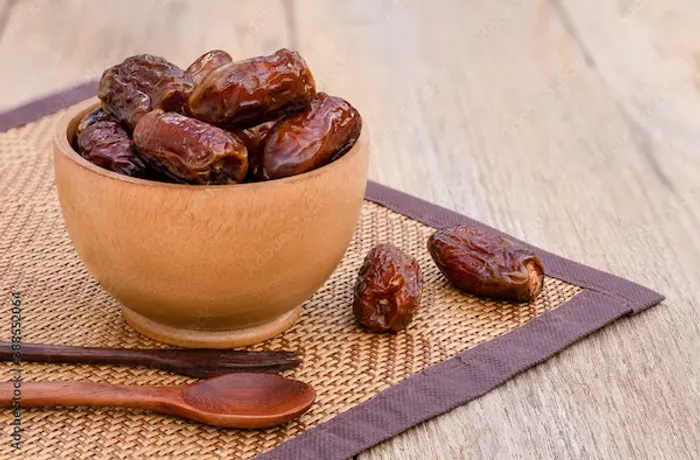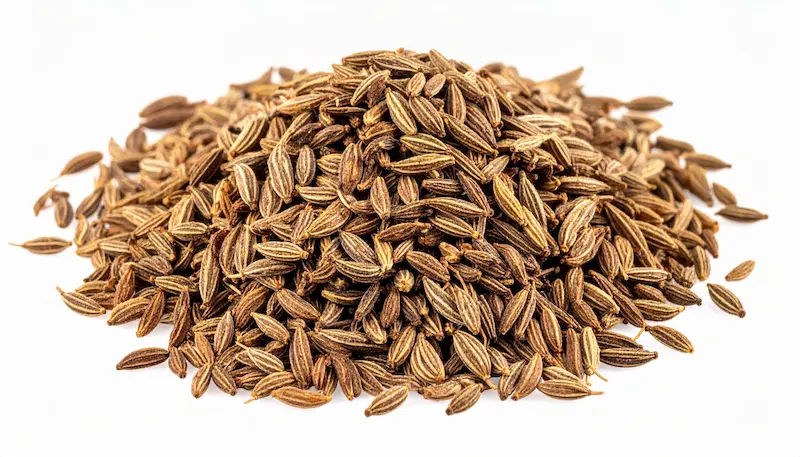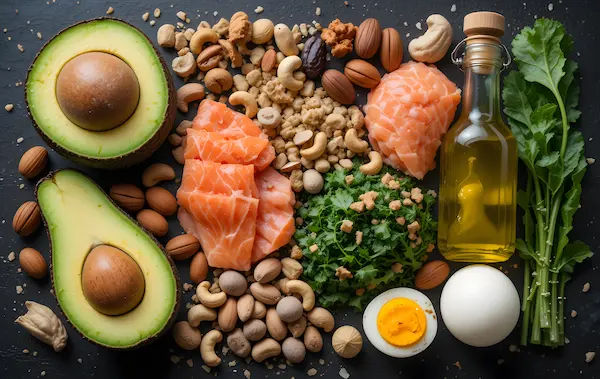Dates (Khajoor) – Your Ultimate Winter Nutrition Companion
Discover why dates (khajoor) are the ultimate winter nutrition companion. Learn their rich nutrient profile, top health benefits, and tips for safe consumption to boost immunity, energy, and overall wellness.

Written by Dr. J T Hema Pratima
Reviewed by Dr. Dhankecha Mayank Dineshbhai MBBS
Last updated on 13th Jan, 2026

Introduction
As the winter chill sets in, our bodies crave warmth and nourishment that goes beyond just a heavy blanket. Nature, in its perfect wisdom, offers a seasonal superfood to answer this call: the humble date, or khajoor. This sweet, chewy fruit isn't just a festive treat; it's a powerhouse of nutrition perfectly suited to combat the unique challenges of the colder months. From boosting your energy levels and fortifying your immune system to keeping your digestion smooth, dates (khajoor) form a perfect courtship with winter wellness. This comprehensive guide will explore the profound benefits of making dates a staple in your winter diet, provide delicious ways to enjoy them, and help you harness their natural power to stay healthy and vibrant all season long.
A Nutritional Powerhouse: What’s Inside a Date?
Often dubbed "nature's candy," dates are far more than just a sweet snack. They are a dense package of essential nutrients that make them an ideal food for sustaining energy and health. Understanding their nutritional profile explains why they are so beneficial, especially during winter.
The Macronutrient Profile: Energy in a Bite
Dates are primarily composed of carbohydrates, mainly in the form of natural sugars like glucose, fructose, and sucrose. This makes them an excellent source of instant energy—a much-needed commodity when the cold weather makes us feel sluggish. Unlike processed sugars, the sugars in dates are released gradually due to the presence of dietary fiber, preventing a sharp spike in blood sugar levels. A single serving (about 3-4 dates) provides a significant amount of your daily fiber needs, promoting satiety and digestive health.
A Deep Dive into Micronutrients: Vitamins and Minerals
The true magic of khajoor lies in its rich micronutrient content. They are an excellent source of potassium, a mineral crucial for maintaining fluid balance, nerve function, and muscle control. They also provide notable amounts of magnesium (for muscle and nerve function and bone health), copper (for iron absorption and immunity), and manganese. Furthermore, dates contain B vitamins like B6, and vitamins A and K, along with antioxidants like flavonoids and carotenoids that fight oxidative stress and inflammation in the body.
Consult Top Nutritionists
Top 5 Health Benefits of Eating Dates in Winter
1. Instant Energy & Natural Warmth
Winter often brings with it a sense of lethargy and fatigue. The high natural sugar content in dates provides a quick and healthy energy boost without the crash associated with caffeine or refined sugars. In traditional medicine systems, dates are considered a "warming" food, helping to generate internal heat and fight off the external cold. Having a few dates with a glass of milk in the morning can be a great way to start a cold day.
2. Boosts Immunity & Fights Winter Ailments
The combination of antioxidants and essential minerals in dates makes them a powerful ally for your immune system. The antioxidants combat free radicals and reduce inflammation, while minerals like selenium and zinc support immune function. Their anti-inflammatory and antibacterial properties can also help soothe a sore throat and alleviate symptoms of a common cold or cough. If your winter cough persists beyond a week, it's advisable to consult a doctor online with Apollo24|7 for a proper diagnosis.
3. Promotes Digestive Wellness
Winter diets can often be heavier and less fibrous, leading to digestive slowdown. The significant dietary fiber in dates adds bulk to the stool and promotes regular bowel movements, preventing constipation. They also act as a prebiotic, fostering the growth of beneficial gut bacteria, which is fundamental to overall digestive and immune health.
4. Strengthens Bones Against the Cold
Aches and pains can feel more pronounced in the cold. Dates contain several minerals crucial for bone health, including calcium, phosphorus, magnesium, and potassium. Studies suggest that regular consumption of potassium-rich foods like dates can help improve bone mineral density and reduce the risk of osteoporosis, keeping your skeleton strong and resilient throughout the winter.
5. Enhances Skin & Hair Health
Harsh winter winds and indoor heating can strip moisture from your skin and hair. The vitamins C and D in dates improve skin elasticity and protect against environmental damage. Their iron content promotes healthy blood circulation, ensuring your hair follicles receive adequate oxygen and nutrients, combating dry scalp and promoting shiny, strong hair.
How to Incorporate Dates (Khajoor) into Your Winter Diet
Simple & Quick Everyday Snacks
Straight Up: The simplest way is to eat 2-3 dates as a mid-morning or afternoon snack.
Stuffed Dates: Remove the seed and stuff them with almonds, walnuts, or a piece of dark chocolate for a protein and healthy fat boost.
Date Smoothie: Blend 2-3 pitted dates with a banana, a cup of milk (or plant-based milk), and a pinch of cinnamon for a warming and energising drink.
Warm and Comforting Winter Recipes
Date and Nut Energy Balls: Pulse dates with nuts like almonds, cashews, and oats in a food processor. Roll into balls for a healthy, on-the-go energy bar.
Date Sweetened Oatmeal: Chop dates and add them to your morning oatmeal along with nuts. They will melt slightly, naturally sweetening the entire bowl.
Traditional Chukki or Panjiri: In many Indian households, dates are a key ingredient in these nutrient-dense winter delicacies made with whole wheat flour, ghee, nuts, and seeds.
Are There Any Side Effects? Who Should Be Cautious?
While dates are incredibly healthy, moderation is key due to their high calorie and sugar content. Overconsumption can lead to weight gain. People with diabetes need to be particularly cautious and should monitor their blood sugar levels carefully when incorporating dates into their diet, ideally under medical guidance. Apollo24|7 offers a convenient home collection for tests like HbA1c to help you keep track of your blood sugar levels over time. Those with IBS or a sensitivity to high-FODMAP foods may also experience bloating or gas if they consume too many at once.
Conclusion
The partnership between dates (khajoor) and winter is indeed a match made in nutritional heaven. This humble fruit offers a simple, delicious, and natural solution to many of the season's health challenges. By providing sustained energy, bolstering your immune defences, aiding digestion, and strengthening your body from within, dates empower you to embrace the winter months with vitality and warmth. Making a handful of these sweet gems a part of your daily routine is a small change that can yield significant benefits for your overall well-being. So this winter, unlock the powerful secrets of dates and experience the sweet difference in your health.
Consult Top Nutritionists
Consult Top Nutritionists
Mrs Sneha P V
Nutritionist
10 Years • Master of science in Food and Nutrition
Bengaluru
Apollo Clinic, Sarjapur Road, Bengaluru

Dr. Ramalinga Reddy
General Physician
5 Years • MBBS MD General medicine
Bengaluru
PRESTIGE SHANTHINIKETAN - SOCIETY CLINIC, Bengaluru
Dt. Ila Sharma
Clinical Nutritionist
18 Years • Master in food & Nutrition
Gurugram
VIPUL GREENS - SOCIETY CLINIC, Gurugram
Ms. Bhavana Shetty
Dietician
7 Years • DDHN & Masters in Clinical Nutrition & Dietetics
Bangalore
Apollo Sugar Clinic, Seetha circle bangalore, Bangalore

Dt. Prabhavathy
Clinical Nutritionist
8 Years • Msc Human Nutrition & Nutraceuticals
Madurai
Apollo Sugar Clinics, Madurai, Madurai
Consult Top Nutritionists
Mrs Sneha P V
Nutritionist
10 Years • Master of science in Food and Nutrition
Bengaluru
Apollo Clinic, Sarjapur Road, Bengaluru

Dr. Ramalinga Reddy
General Physician
5 Years • MBBS MD General medicine
Bengaluru
PRESTIGE SHANTHINIKETAN - SOCIETY CLINIC, Bengaluru
Dt. Ila Sharma
Clinical Nutritionist
18 Years • Master in food & Nutrition
Gurugram
VIPUL GREENS - SOCIETY CLINIC, Gurugram
Ms. Bhavana Shetty
Dietician
7 Years • DDHN & Masters in Clinical Nutrition & Dietetics
Bangalore
Apollo Sugar Clinic, Seetha circle bangalore, Bangalore

Dt. Prabhavathy
Clinical Nutritionist
8 Years • Msc Human Nutrition & Nutraceuticals
Madurai
Apollo Sugar Clinics, Madurai, Madurai
More articles from General Medical Consultation
Frequently Asked Questions
How many dates should I eat in a day during winter?
For most people, a serving of 3-4 dates per day is sufficient to reap the health benefits without overconsuming sugars and calories. Listen to your body and adjust accordingly.
What is the best time to eat dates for maximum benefit?
Eating them in the morning can provide a great energy boost for the day. Consuming them pre-or post-workout can also help with energy and recovery. Avoid eating a large quantity right before bed.
Can diabetics eat dates (khajoor)?
Diabetics need to be cautious. While dates have a medium glycemic index, they are high in sugar. It's crucial to consume them in very small quantities (1-2 at a time) and only as part of a balanced meal, not alone. Always monitor blood glucose levels and consult with a doctor or nutritionist.
Are there any specific types of dates best for winter?
All varieties (Medjool, Ajwa, Deglet Noor) are beneficial. Medjool dates are larger, softer, and sweeter, while Ajwa dates are prized in traditional medicine. Choose based on your taste preference and availability.
Can dates help with a winter cough?
Yes, their anti-inflammatory properties can help soothe the throat. A traditional remedy involves soaking dates in water overnight and drinking that water in the morning. However, for a persistent cough, medical advice is recommended.

.webp)


